Our nation was founded by stoic individuals who had the optimism that we could succeed, in fact prosper without a crown. We should not forget how revolutionary that thought was in the world at that time. Although democracy was known, it had not been a foundational part of a government without a sovereign since the Greek and Roman Republics.
The earnestness to not only shed the crown and colonial government was remarkable enough, but to seek a government of the people, by the people, and for the people was stunning. The British King and fellow regents in Europe were not only dismissive but hostile to the idea. However, the pragmatism with which we fought for our collective ideals changed the world.
This is the difference between optimism and cynicism laid bare before our eyes. Our forefathers used optimism, vision, and courage to create something new to forge a different path.
The natural tendency many of us must avoid change or to seek control over that change is a major issue today as it has been throughout history. Tradition is comforting and comfort is easy to get lost in. Yet change we must as it is the only constant. The world of 1776 is not the world of 2024. It is not just the different opportunities and threats that exist today, but the sheer number of people, speed of communication, and advanced technology all of which dictate a different pace, focus, and way of living. We do not live in the same world as our grandparents.
The optimism with which we meet these challenges will define our success. The can-do spirit so ingrained in our national identity and our own desire to leave the world in a better place than when we arrived, is essential and fundamental to our lives as humans. We wake in the morning tackling our challenges head on, we strive to help our family and friends thrive. This positivity is essential to success.
If optimism is the American way, the human way, of facing the future, a question arises as to how we will put that optimism into practice. Some rush headlong without considering that they may not be correct. Wise leaders realize that success, no matter how it is defined, takes a team. This requires not just the ability to work with a diversity of people, thoughts, and ideas to agree on a direction but also to include the even less inclined, to feel they are a part of the process.
Again, we can look at our Nation’s founders for a success story. The founding fathers (plural) had to learn to work together and invite a majority of the populace to change, and the sacrifice needed for that change was not only good but needed. This required negotiation and sacrifice, from each and every one of them. However, above all, it required civil discourse and the openness to hear another perspective and adjust to those perspectives. Was the result perfect? No, but it has lasted for over 200 years and has been a beacon for many countries to follow.
The need for civic discourse was so foundational to our republic, that the founders referenced the Enlightenment ideal and advocated for free exchange of ideas in a public square. We know they intended the exchange to be civil, they did not reference any referee. Similarly, they knew not everyone would agree with everything said, however, like a healthy wildlife habitat, the more diverse the healthier the environment and society.
Has any of us ever met anyone who is all knowing and always right? Have you ever met someone whose life experience is identical to yours? Those differences should not separate us but create opportunities for us to grow. We are stronger when we are together when we pool our individual talents, perspectives, and goals to make our community, the nation, and the world better. Granted, that movement may be at different speeds and of course sometimes we may have to slow to an almost stop to move forward again. But we must move forward, this is the way of the world, time waits for no one, especially for cynics.
Optimism and civic discourse are not for the faint of heart or those that enjoy comfort and the easy life. The courage to discuss hard topics in a public square is not only essential to the success of our society, but also to our growth as individuals. We all bring so much richness to the world with our experiences, skills, and thoughts; bottling them up for ourselves or other like-minded friends is not the most efficient use of that bounty.
Reach out to people, find those many things we have in common, bond with your fellow travelers, and then search for the differences. Their ideas will not hurt you just as yours won’t hurt them. Those edges are where growth, optimism, and society flourish.

